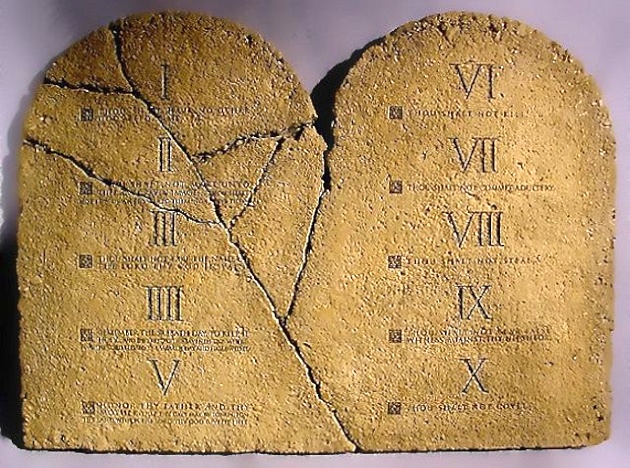Question
Gramps,
Why do we pray to Heavenly Father and not Jesus Christ when he is the god of this Earth.
June
Answer
Hello June,
Thank you so much for asking this question. Although, this topic seems to be simple enough to answer, it requires a lot of background information in order to provide a fair and just answer. So, I’ll take the following steps to answer your inquiry;
- Step One: Who is God (The Father a.k.a Elohim)?
- Step Two: Who is His Son (Jesus Christ a.k.a Jehovah)?
- Step Three: Who do we need to Pray to?
Who is God the Father?
Throughout the ages, there have been many who’ve asked themselves this question and the answers are not only interesting but diverse in nature. In the Church’s official website we read:
The Father of Our Spirits
One of life’s great questions is “Who am I?” A beloved Primary song helps even little children answer this question. We sing, “I am a child of God, and he has sent me here.” The knowledge that we are children of God provides strength, comfort, and hope.
Scholars have long acknowledged that the view of God held by the earliest Christians changed dramatically over the course of centuries. Early Christian views of God were more personal, more anthropomorphic, and less abstract than those that emerged later during Christianity’s creedal stage. The key ideological shift that began in the second century, after the loss of apostolic authority, resulted from a conceptual merger of Christian doctrine with Greek philosophy.
Latter-day Saints believe the melding of early Christian theology with Greek philosophy was a grave error. Chief among the doctrines lost in this process was the nature of the Godhead. Latter-day Saints hold that God the Father is an embodied being with the attributes ascribed by the earliest Christians. That belief is consistent with the early Christian views of God, yet it differs from the later creeds.
We are all literally children of God, spiritually begotten in the premortal life. As His children, we can be assured that we have divine, eternal potential and that He will help us in our sincere efforts to reach that potential.
The Supreme Creator
Heavenly Father is the Supreme Creator. Through Jesus Christ, He created heaven and earth and all things in them (see Moses 2:1). Alma said, “All things denote there is a God; yea, even the earth, and all things that are upon the face of it, yea, and its motion, yea, and also all the planets which move in their regular form do witness that there is a Supreme Creator” (Alma 30:44).
The Author of the Plan of Salvation
Our Father in Heaven wants us to dwell with Him eternally. His work and glory is “to bring to pass the immortality and eternal life of man” (Moses 1:39). In order to make this possible, He prepared the plan of salvation. He sent His Beloved Son, Jesus Christ, to loose the bands of death and atone for the sins of the world: “For God so loved the world, that he gave his only begotten Son, that whosoever believeth in him should not perish, but have everlasting life” (John 3:16). This sacrifice is the greatest expression of our Father’s love for us.
Coming to Know God the Father
As children of God, we have a special relationship with Him, setting us apart from all His other creations. We should seek to know our Father in Heaven. He loves us, and He has given us the precious opportunity to draw near to Him as we pray. Our prayers, offered in humility and sincerity, are heard and answered.
We can also come to know our Father by learning about His Beloved Son and applying the gospel in our lives. The Savior taught His disciples: “If ye had known me, ye should have known my Father also. … He that hath seen me hath seen the Father” (John 14:7, 9).
We draw near to God the Father as we study the scriptures and the words of latter-day prophets and as we give service. When we follow God’s will and live as He would have us live, we become more like Him and His Son. We prepare ourselves to return to live in Their presence.
Spiritually speaking, we are one generation away from Our Heavenly Father.
Who is “His Son”?
In the Church’s Old Testament Institute student’s manual, we read:
Who Is the Lord?
The hardhearted pharaoh, impudent and proud, asked, “Who is the Lord, that I should obey his voice … ? I know not the Lord” (Exodus 5:2). Many people today are just as ignorant of the God of the Old Testament as the pharaoh was. They regard Him as a being created by the minds of the ancients, a God of wrath and low religion who would destroy people with floods and plagues. Could this be the same God as the being of love in the New Testament revealed through the mortal ministry of Jesus Christ? Others contend that the Jehovah of Old Testament times was the same as God the Father in the New Testament. Why all this confusion? Who, really, was the God of Adam, of Enoch and Abraham, of Israel and Moses?
Although for many it seems a paradox, Jehovah of the Old Testament was none other than the Son of God, Jesus Christ. He created the world under the authority and direction of God the Father. Later, Jehovah came to earth as the Savior and Redeemer of the world. This truth is one of the most misunderstood doctrines in the history of the world, despite the fact that the Old Testament and the other standard works are filled with evidence to support it.
Before looking at the scriptural evidence, it may be wise first to better understand the names and titles for God the Father and His Only Begotten Son. Generally, two Hebrew words for God are used throughout the Old Testament. These are Elohim and Jehovah, as it is presently pronounced. (Since the original Hebrew was written without vowels, scholars disagree on the original pronunciation of the name written YHWH in Hebrew. In modern revelation, however, Jesus accepted the title Jehovah [see D&C 110:3].)
Jehovah was the premortal name-title given to the Firstborn Son of God. He is now referred to as Jesus Christ. The meaning of the name Jehovah was explained by Elder Talmage:
“Jehovah is the Anglicized rendering of the Hebrew, Yahveh or Jahveh, signifying the Self-existent One, or The Eternal. This name is generally rendered in our English version of the Old Testament as LORD printed in capitals. The Hebrew, Ehyeh, signifying I Am, is related in meaning and through derivation with the term Yahveh or Jehovah.” (Jesus the Christ, p. 36.)
The Jews regarded the name of Jehovah as so sacred that it could not be spoken. Instead, they substituted for Jehovah the word Adonai, which signifies “the Lord.” (See Talmage, Jesus the Christ, p. 37.) The King James translators followed the same practice out of respect for the Jewish custom. Sometimes the word lord, however, is used to refer not to God but to royalty or other important people. To distinguish the sacred name from common usage, the translators capitalized lord when it referred to Jehovah and left it in lower case letters otherwise. (See 2 Samuel 15:21 for an example of both uses of the word lord.)
The word Elohim is a plural form of the Hebrew word for God, although modern scholars agree that it should be taken as a singular noun even though the im ending is a plural form. Joseph Smith, however, indicated the significance of the plural form:
“If we pursue the Hebrew text further, it reads, … ‘The head one of the Gods said, Let us make a man in our own image.’ I once asked a learned Jew, ‘If the Hebrew language compels us to render all words ending in heim in the plural, why not render the first Eloheim plural?’ He replied, ‘That is the rule with few exceptions; but in this case it would ruin the Bible.’ He acknowledged I was right.
“In the very beginning the Bible shows there is a plurality of Gods beyond the power of refutation. It is a great subject I am dwelling on. The word Eloheim ought to be in the plural all the way through—Gods. The heads of the Gods appointed one God for us; and when you take [that] view of the subject, it sets one free to see all the beauty, holiness and perfection of the Gods.” (Teachings, p. 372.)
Elder James E. Talmage explained the special significance Elohim has for Latter-day Saints:
“The name Elohim … is expressive of supreme or absolute exaltation and power. Elohim, as understood and used in the restored Church of Jesus Christ, is the name-title of God the Eternal Father, whose firstborn Son in the spirit is Jehovah—the Only Begotten in the flesh, Jesus Christ.” (Jesus the Christ, p. 38.)
It is vital to remember the place of God the Father: He is the Father of our spirits (see Hebrews 12:9) and is our God. The existence of other Gods cannot alter that fact. He is the author and sponsor of the eternal plan of salvation. It is equally essential to note, however, that the agent by whom He administers His affairs on this earth is His Firstborn Son, known as Jehovah in the Old Testament. He gave Jesus the full “Fatherly” authority to organize and govern the earth, then through the Atonement Jesus became the Father of the faithful. The Savior thus became the chief advocate of the Father’s plan.
Because Jesus is one with God and is also God, the Old Testament prophets sometimes referred to Him as “Jehovah Elohim,” which the King James translators rendered “LORD God.” To avoid awkward repetition, “Lord GOD” was used to translate the Hebrew phrase “Adonai Jehovah,” which otherwise would translate as “Lord LORD” (see Genesis 15:2, 8; Deuteronomy 3:24). Thus, in the King James Version of the Old Testament, the Hebrew word for Jehovah is almost always translated just this way: LORD or GOD.
One other name or title of Jesus needs explanation. He is known as Jesus the Christ. The word Christ comes from the Greek word christos, which means “the anointed one.” The Greeks used the title Christos to translate the Hebrew word meshiach, which means “the anointed one.” The Hebrew word has been anglicized into messiah. Jesus the Christ means “Jesus the Messiah.”
There was confusion in the minds of the later Jews, Jesus’ own people, regarding the identity of their God because they no longer understood their own scriptures. That is likewise the problem today with most of the Christian world. The mystery of understanding the identity of the God of the Old Testament arose in both cases because of wickedness and the loss of many plain and precious truths from the scriptures. By contrast, Jesus said that life eternal consisted of gaining a full knowledge of the Father and the Son (see John 17:3). In the final analysis the individual comes to know the true God through experiences that train him to be like Him, and thus he understands, or knows, Him (see 1 John 2:3; 3:1–2; Ether 2–3).
By the time Christ came, the Jews had lost the knowledge of the three distinct members of the Godhead. They had lost the truth that Jehovah, who had given them the law of Moses, would come into the world as the Redeemer of all mankind, even though the prophets had clearly taught this principle (see 1 Corinthians 10:4; 3 Nephi 15:10; Isaiah 41:14; 44:6). They yearned for the appearance of the promised Messiah as a political savior to free them from Roman rule. But Matthew testified that John the Baptist, who prepared the way for Jesus, was “he that was spoken of by the prophet Esaias, saying, … Prepare ye the way of the Lord” (Matthew 3:3). This is a reference to Isaiah 40:3, where the word LORD is used to mean Jehovah. Christ Himself told the Jews in Jerusalem that “before Abraham was, I am” (John 8:58). The people considered this blasphemy and picked up stones to kill Him, because they realized that His using the phrase I am in this way was another way of saying “I am Jehovah” (see v. 59).
Jesus Christ, being “one with His Father” , The Only Begotten of the Father and The Great I AM, is the rightful owner of this title.
Who should we pray to?
Sister Beth T. Spackman, a seminary teacher from Midnapore (in Calgary), Alberta, eloquently answered this question in an article that appeared in the Ensign (June 1988).
In the Sermon on the Mount, Jesus gave specific instructions about whom we should pray to: “Our Father which art in heaven.” (See Matt. 6:5–13.) He gave similar instructions to the Nephites. (See 3 Ne. 13:5–13.) The Father’s name is hallowed. It is to him that we should pray, asking that his will be done. During his ministry, both in the Old World and in the New, Jesus, our exemplar, always prayed to the Father.
In the pattern of prayer given to the Nephites, the direction was to “pray unto the Father in the name of Jesus.” (See 3 Ne. 19:6–8; see also 3 Ne. 18:19, 21.) Jesus is our Mediator with the Father, and all we do in our attempts to approach the Father must be done in his name. (See 1 Tim. 2:5.)
In 3 Nephi 19:16–30, however, we read that, when Jesus was in their immediate presence, his disciples prayed directly to him. Perhaps the key to this unusual behavior is found in verse 22, where Jesus explains that “they pray unto me because I am with them.” (Italics added.) Jesus made this comment while praying to the Father for the welfare of his disciples.
Apparently, on that occasion, while he was in their presence, praying to him was acceptable. After he left them, however, the Nephites continued the pattern of praying to the Father in Jesus’ name, as we are directed to do also. (See 3 Ne. 20:30–31; 3 Ne. 27:2, 28–29.)
Elder Bruce R. McConkie clearly explained what our relationship with each member of the Godhead should be, pointing out that some misguided members of the Church may “begin to pray directly to Christ because of some special friendship they feel has been developed” with him. This is wrong, said Elder McConkie. We should pray directly to the Father, and he will answer our prayers as he sees fit. Elder McConkie also pointed out that we should maintain an attitude of reverence for all the members of the Godhead. (See “Our Relationship with the Lord,” in Brigham Young University 1981–82 Fireside and Devotional Speeches, Provo: Brigham Young University, 1982, pp. 97–103.)
Likewise, we do not pray to the Holy Ghost, even though we may pray for specific gifts of the Holy Ghost—such as the gifts of tongues, comfort, knowledge, or remembrance. We should always pray to the Father. He is the Director, the Supreme Being, the Ultimate Power.
As we contemplate our relationship with Christ and our prayers to the Father, it may be helpful for us to think about our premortal life. The Father’s plan was presented for our sustaining vote. Lucifer wanted the power and glory for himself, but Christ, in his wisdom and humility, realized that the honor and glory should go to the Father. Thus, the Savior has consistently instructed, “When ye pray, say, Our Father which art in heaven.” (Luke 11:2.)
In summery, it is important to understand that praying to Heavenly Father is the only way to worship the God of this universe but, we must do it in the name of His Son Jesus Christ who is our intermediary with the Father and, the only scriptural instance where men have prayed directly to Jesus was when he was in their presence, as a resurrected being.
With love,
Gramps







